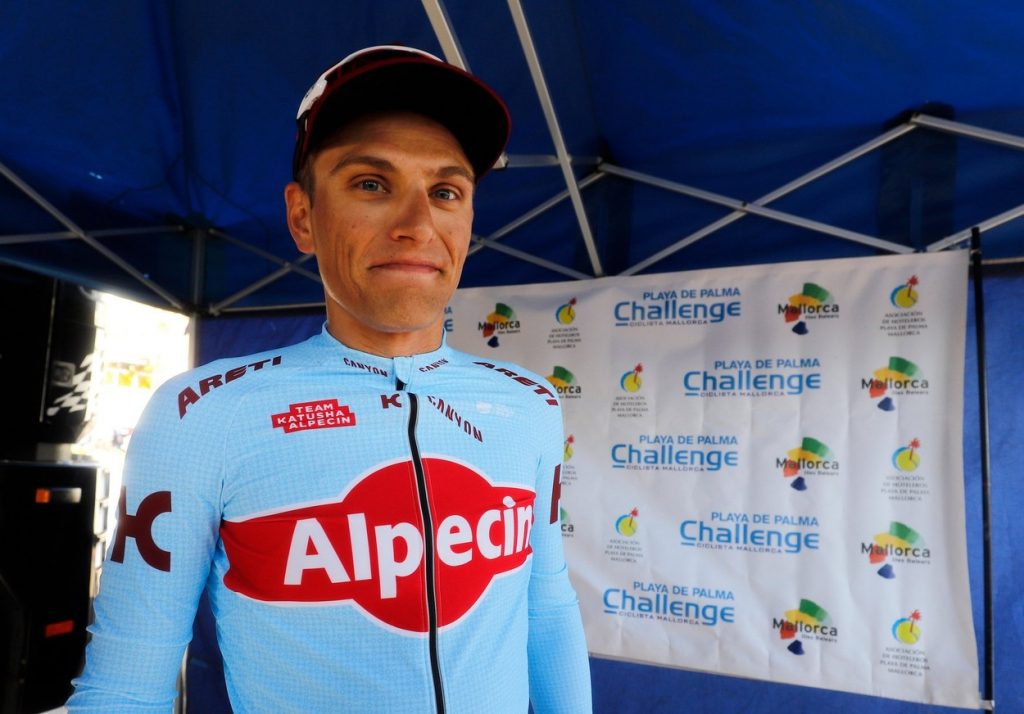In a video also released by his team, Dumoulin tried to explain. “I have felt for quite some time, months, maybe even a year actually, that it is very difficult for me to know how to find my way as Tom Dumoulin the cyclist,” he said. “With the pressure that comes with it, the expectations of different parties. I really want to do very well for a lot of people, but that has made me forget myself a little in the past year.”
This move was not unprecedented. In 2019, the German sprinter Marcel Kittel, winner of 14 Tour de France stages, also stepped away from the sport, saying: “It was for me a long decision process where I raised a lot of question about how and where I want to go as a person and athlete and what is really important to me. I love cycling and my passion for this beautiful sport is never gone but I also know what it requires from me and what I need to be successful.”
It was at first meant to be a break in his career, but three months later Kittel announced his permanent retirement from the sport. He was 31 years old.
For amateur racers and devoted fans of the sport, it may come as a shock when successful riders simply stop riding at the peak of their careers, citing feelings that are at best not very clear and which people not walking in their shoes may not understand.

To perhaps better understand the pressures and stress that high-performance cyclists are under, Cycling Weekly recently interviewed 21-year-old Théo Nonnez, the 2016 winner of the French youth road race championship, who was in his third year with the Groupama-FDJ continental team when on April 12 of this year he called it quits.
“I had come to a point when I could not do it anymore,” he said. “I felt bad about not respecting the contract, but I would have felt like [I was] taking the guys for idiots going there and pretending everything was all right. This sport is so hard when you’re at 100 per cent, so when you’re not, it’s not even an option.”
In announcing his decision, Groupama-FDJ Continentale said Nonnez was leaving the sport “after suffering from severe mental health problems due to the stress of training.”
https://www.instagram.com/p/BZWZR0fh7NV/?utm_source=ig_web_copy_link
But the move was certainly more complicated than that. Nonnez said that he had thought long and hard before deciding to walk away from the sport – and he did not regret it. He noted that some people might call his condition burnout, but this was too simple an explanation. “It’s rather an addition of many things that got me to this point.”
Perhaps, like Kittel and Dumoulin, it was a relief for him to finally express what he was feeling.
“I had entered a vicious cycle and I didn’t dare talk about how I felt,” he said. “I realize that I did the right thing [by] coming out of my silence because I don’t know what would have happened if I had remained quiet any longer.”
Nonnez said that the situation had become so unbearable that he was close to a breakdown. “I started to cry on the bike,” he said. “At that point, I said to myself: ‘Théo, you have to stop all this, it has to change, there is something wrong.’ I then took a step back and got great support from the team’s medical staff, as well as from my relatives.”
When he informed the team of his difficulties, he was told to take a few weeks to think about it and not ride if that’s what he felt like doing. “I can’t thank the team enough for that,” Nonnez said.
In addition to the French junior championship, Nonnez had racked up some notable performances during his short career, including fifth at the Ronde de l’Isard and an impressive fourth place at the under-23 Liège-Bastogne-Liège. But success came at a price that he was not able to pay any longer – perhaps like Marcel Kittel and Tom Dumoulin.




